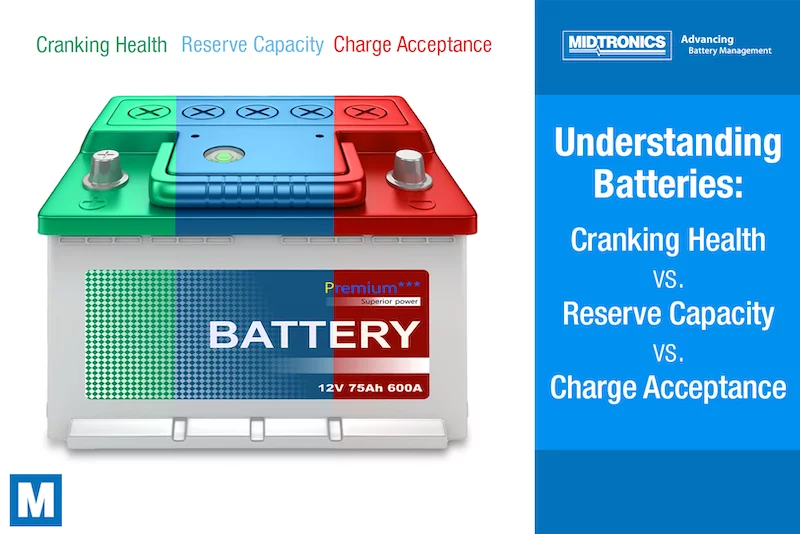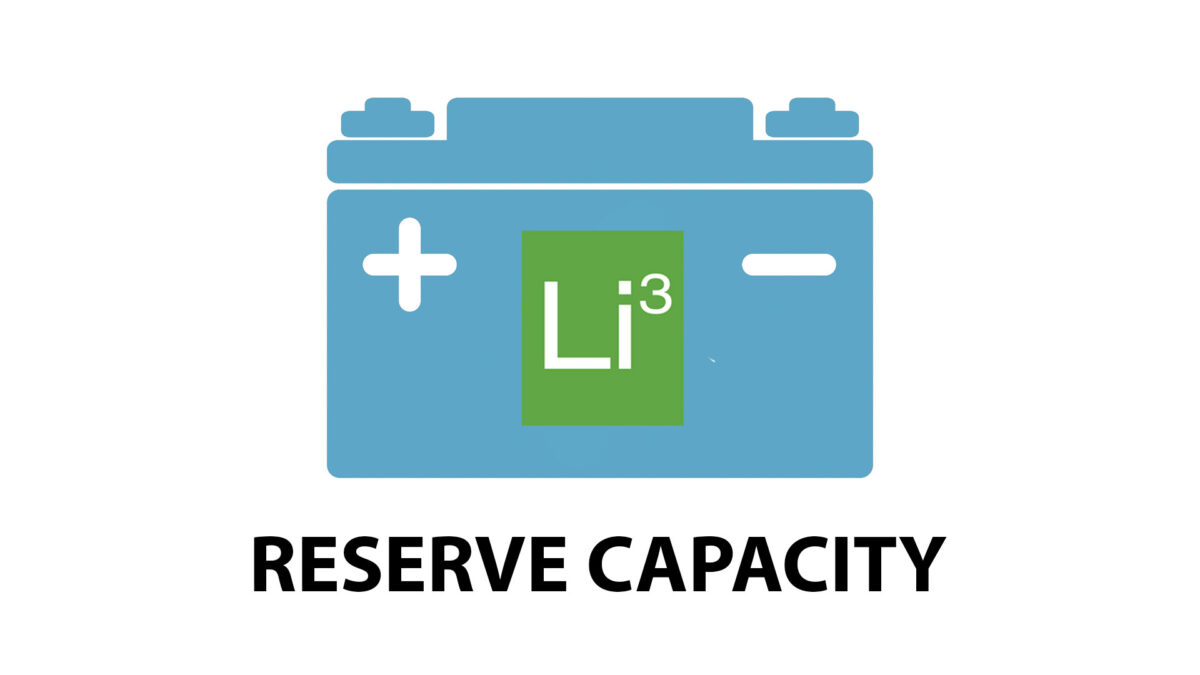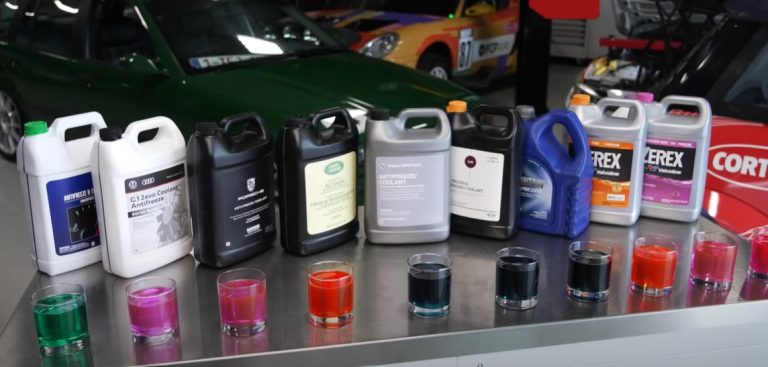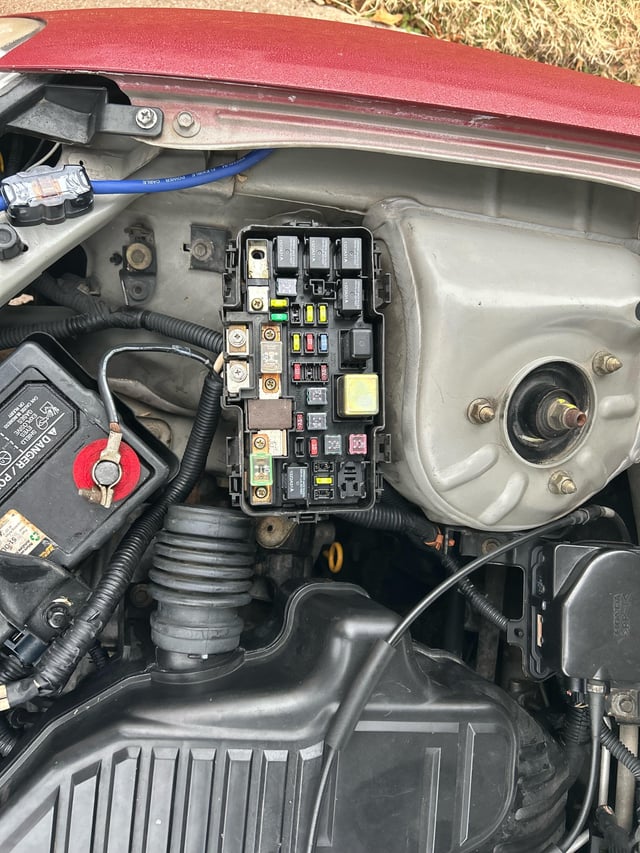What is Reserve Capacity on a Car Battery: Essential Guide
Reserve Capacity (RC) on a car battery is the number of minutes the battery can deliver a steady 25 amps at 80°F before dropping below 10.5 volts. It indicates how long your vehicle can run on battery power alone if the alternator fails, ensuring emergency backup energy.
Understanding your car battery’s reserve capacity could save you from future headaches. This crucial feature determines how long your battery can power your car’s essential systems when the alternator fails. But what exactly is reserve capacity, and why should it matter to you?
We’ll break down everything you need to know about reserve capacity in simple terms. By the end, you’ll not only grasp its importance but also feel confident in choosing the right battery for your needs. Keep reading to uncover the secrets that can keep your car running smoothly, even when the unexpected happens.
What is Reserve Capacity on a Car Battery
Reserve Capacity Definition
Understanding car battery reserve capacity is crucial for drivers. Reserve capacity is a key factor in battery performance. It measures how long a battery can power a vehicle’s electrical system without the engine running. This is vital during emergencies or when the alternator fails. Knowing this helps in choosing the right battery for your car. Let’s delve deeper into the definition of reserve capacity.
What Is Reserve Capacity?
Reserve capacity is the battery’s ability to provide power. It is measured in minutes. It indicates how long the battery can supply electricity at 25 amps. This happens when the alternator is not generating power. A higher reserve capacity means more time before the battery drains completely.
Reserve capacity is essential for safety. It ensures that the car’s electrical systems run smoothly. When the alternator fails, reserve capacity keeps the lights and radio on. It also powers critical systems, like the ignition. This prevents being stranded on the road.
How Is Reserve Capacity Tested?
Reserve capacity is tested under controlled conditions. Technicians use specific equipment to measure it. They discharge the battery at 25 amps and record the time it takes to drop below 10.5 volts. This test shows the battery’s endurance. It helps in comparing different battery models.
Choosing A Battery With Adequate Reserve Capacity
Selecting a battery involves checking the reserve capacity. Consider your driving habits and vehicle needs. Long trips require batteries with high reserve capacity. Short city drives might need less. Always consult your vehicle’s manual for recommended specifications.

Credit: www.enduropowerbatteries.com
Importance Of Reserve Capacity
Reserve capacity is crucial for a car battery’s reliability. It determines how long your battery can provide power when the engine isn’t running. Imagine your car’s lights left on by mistake. A battery with good reserve capacity can still start the engine later. This feature can save you from getting stranded.
Understanding Reserve Capacity
Reserve capacity measures a battery’s endurance. It shows how long a battery can deliver power without charging. This is vital during unexpected situations. Like when the alternator fails. A high reserve capacity means more backup time.
Benefits Of High Reserve Capacity
High reserve capacity offers peace of mind. It ensures your car runs smoothly in emergencies. You have more time before the battery drains completely. This can be especially helpful in remote areas. Or during bad weather.
Selecting a battery with high reserve capacity is wise. It provides better performance and reliability. Consider your driving habits and conditions. Heavy power use demands higher reserve capacity.
Impact On Battery Life
Reserve capacity affects the lifespan of a battery. A battery with high reserve capacity usually lasts longer. It reduces the frequency of deep discharges. Deep discharges can shorten a battery’s life. Regular maintenance also helps in prolonging battery life.
Factors Affecting Reserve Capacity
Understanding reserve capacity is crucial for car battery health. Several factors can influence reserve capacity. Recognizing these can help maintain battery performance.
1. Battery Age
Older batteries often have reduced reserve capacity. Over time, internal components wear out. This diminishes their ability to hold a charge.
2. Temperature Conditions
Extreme temperatures impact battery performance. Cold weather can reduce reserve capacity. Heat speeds up chemical reactions inside the battery. This can cause deterioration.
3. Battery Maintenance
Regular maintenance helps sustain reserve capacity. Clean terminals prevent corrosion. Checking electrolyte levels also ensures efficient operation.
4. Driving Habits
Short trips don’t allow batteries to fully recharge. Frequent, long drives are beneficial. They help maintain optimal reserve capacity.
5. Electrical Load
High electrical demands decrease reserve capacity. Using many electronic devices strains the battery. Limit use to prevent excessive drain.
6. Battery Type
Not all batteries are the same. Some types naturally have higher reserve capacity. Choosing the right type is essential for performance.
Read more: How Long Can Car Battery Last Without Driving: Maximize Lifespan
Testing Reserve Capacity
Understanding reserve capacity is crucial for your car battery’s health. Testing reserve capacity helps determine how long a battery can power essential systems. It measures endurance when the alternator fails. Knowing this ensures preparedness during emergencies. Regular testing identifies issues before they become significant problems.
How To Test Reserve Capacity
Testing reserve capacity requires the right tools. Use a battery load tester or multimeter. These tools measure the battery’s performance under load. Start by charging the battery fully. Disconnect it from the vehicle. This ensures accurate results.
Steps Involved In Testing
Begin by connecting the load tester to the battery. Follow the device instructions carefully. Apply a load equal to the battery’s reserve capacity. Monitor the time it takes for voltage to drop. Record the time and compare it to the expected reserve capacity.
Interpreting Test Results
Results indicate the battery’s ability to sustain power. A lower time suggests diminished capacity. This may signal the need for replacement. Consistently low results mean the battery is aging. Consider replacing for better reliability.
Importance Of Professional Testing
Professional testing offers precision. Experts use advanced equipment for accuracy. They provide detailed insights into battery health. Professional advice ensures you take informed actions. It helps avoid unexpected battery failures.
Read more: How to Reprogram Key Fob After Replacing Battery: Expert Tips
Choosing The Right Battery
Choosing the right battery for your car is crucial. It ensures optimal performance and reliability. One key factor in this decision is reserve capacity. Understanding this helps you select a battery that meets your needs.
Understanding Reserve Capacity
Reserve capacity is the battery’s ability to power your car when the alternator fails. It measures how long the battery can deliver power. This is typically expressed in minutes. A higher reserve capacity means more reliability during emergencies.
Reserve capacity is vital for those unexpected moments. Imagine your alternator failing during a long drive. A battery with high reserve capacity keeps your car running. It provides peace of mind in such situations.
Several factors influence reserve capacity. Battery size plays a significant role. Larger batteries usually offer more reserve capacity. The battery’s age and condition also affect it. Regular maintenance ensures optimal performance.
Selecting The Right Battery
Consider your driving habits and conditions. Long drives require batteries with high reserve capacity. Short city drives may need less. Check your vehicle’s specifications. They guide you in choosing the right reserve capacity.
Checking Battery Specifications
Look at the battery label. It shows the reserve capacity in minutes. Compare different batteries to find the best fit. Ensure it meets your vehicle’s requirements.
Consulting With Professionals
Seek advice from automotive experts. They help interpret battery specifications. Professionals recommend suitable options based on your needs. This ensures you make an informed decision.

Credit: www.midtronics.com

Credit: www.youtube.com
Frequently Asked Questions
What Does Reserve Capacity Mean In Car Batteries?
Reserve capacity shows how long a battery can run essential systems. Usually measured in minutes.
How Is Reserve Capacity Measured In A Car Battery?
Measured in minutes. Represents how long the battery can deliver 25 amps. Without the engine running.
Why Is Reserve Capacity Important For Car Batteries?
Helps during emergencies. Powers essential systems when alternator fails. Ensures reliability.
- Definition: Reserve capacity on a car battery indicates how long the battery can supply power if the alternator fails.
- Importance: It ensures your vehicle can run essential systems during emergencies.
- Measurement: Usually expressed in minutes, showing how long the battery lasts at 25 amps before dropping to 10.5 volts.
Conclusion
Understanding reserve capacity helps maintain your car battery effectively. It indicates how long your battery can supply power if the alternator fails. Knowing this can prevent unexpected breakdowns. A good reserve capacity ensures your car runs smoothly in emergencies. Regular checks and maintenance can prolong battery life.
Choosing a battery with suitable reserve capacity is essential. It provides peace of mind during long drives. Always consider your vehicle’s needs before purchasing a new battery. Make informed choices for better performance. Stay prepared and keep your car running efficiently.







